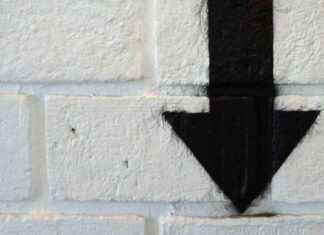Henry, on his resignation: “No sacrifice is too great for our country”
The Prime Minister of Haiti, Ariel Henry, announced this Monday in a speech to the nation his resignation, presented shortly before the Council of Ministers, in the midst of the wave of violence that has escalated in recent days and that has not allowed to return to the Caribbean country, since it coincided with an official international tour.
Henry’s Government will remain in place to put an end to “current affairs” until the installation of a new Transitional Presidential Council and the appointment of a new prime minister. The parties will have 24 hours to designate their representative before this body, the Haitian leader has clarified, while calling for calm, reports the ‘Gazette Haiti’ newspaper.
“I want to thank the Haitian people for the opportunity they have given me to serve with integrity, wisdom and honesty (…). No sacrifice is too great for our country, Haiti,” he declared through a pre-recorded video shared to through their social networks.
Henry, who is currently stranded in Puerto Rico, has regretted that for more than eleven weeks the country has experienced an increase in acts of violence, which has affected the population, through murders, attacks, looting and destruction of public buildings. and private.
Hours earlier, the president of Guyana and current president of the Caribbean Community (Caricom), Irfaan Ali, had reported the resignation after an extraordinary session in Jamaica on the situation in Haiti with representatives of several countries.
“We note the resignation of Prime Minister Ariel Henry, the creation of a Presidential Transition Council and the appointment of an interim Prime Minister. I want to pause to thank Henry for his service to Haiti, his service to the Haitian people and his personal commitment to the development of Haiti,” Ali declared during the closing press conference of the high-level meeting.
In this sense, he explained that the aforementioned council, which will exercise the specific authority of the Presidency during the transition, will be composed of seven members with voting rights from various social groups (Collectif, Agreement December 21, RED/EDE, Lavalas, Montana, Pitit Dessalines and the private sector) and two non-voting observers, represented by a member of civil society and one of the interfaith community.
This body will exclude any person who is currently accused or has been convicted in any jurisdiction, under UN sanctions, who opposes UN Security Council resolutions or who intends to run in the next elections. The Transitional Presidential Council will “swiftly select and appoint an interim prime minister,” he said.
After that, the Council and the prime minister will appoint an “inclusive” Council of Ministers. The transitional Presidency will approve the decrees of the Council of Ministers and will establish the criteria for the establishment of a provisional electoral authority. Its functions include taking steps towards a peaceful transition, ensuring continuity of governance and establishing a national security council.
The transitional authorities must continue the attempts of the international community to deploy the Multinational Security Support Mission in Haiti, led by Kenya, and whose objective is to contain the wave of criminal violence that has been shaking the Caribbean country for years.
“The parties also make specific individual commitments with respect to the principles of inclusion, integrity, restoration of peace and orderly transition of power. These shared and individual commitments can represent important steps to facilitate greater humanitarian access to help alleviate the suffering of the Haitian people,” said the President of Guyana during his speech.
Following this announcement, Alí ??stated that “the Haitian participants must now fully comply with their commitments”, since “Haitians deserve a country where children can go to school and their parents know they will be safe”, which is why he implored the parties and the population to be patient.
“Let us give this agreement the opportunity to work, to enter into a process of national dialogue and lay the foundations for a transition that is based on inclusion, encourages the participation of all interested parties, and paves the way for elections as soon as possible.” possible. This is the only sustainable path towards a future of strong democratic institutions, peaceful conflict resolution, and security and prosperity for all Haitians,” he added.
Finally, the Guyanese president has praised “the will and courage of the Haitian stakeholders who are committed to returning Haiti to the path towards democracy, stability and prosperity”, while he has valued the role of the regional body and the delegations from different countries that have participated in the high-level session on the situation in Haiti.
The new wave of violence that Haiti is experiencing, which has hit the airports at a time when the head of Government was on an official visit to Kenya, forced the Executive to declare a state of emergency and a curfew after a mass escape of prisoners from the two main prisons in the capital, Port-au-Prince.
One of the country’s great criminal leaders, Jimmy Chérizier, alias ‘Barbecue’, launched an attack on the prime minister, threatening to plunge the country into a “civil war” if he did not resign in the midst of a scenario of absolute chaos. given the domination of the gangs over Port-au-Prince and surrounding areas, consolidated after the 2021 assassination of President Jovenel Moise.
Henry came to power in July 2021, two days before Moise’s assassination, so he was not sworn into office. In a speech before assuming the leadership of the Haitian Government, he called for political unity and a consensus cabinet, although there is no agreed electoral calendar, which has generated indignation among the population.







